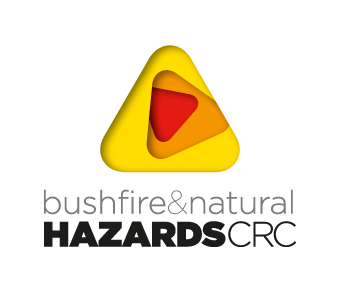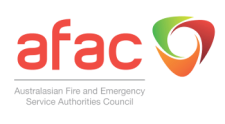For Teachers and Lecturers
 This section is a resource for higher education lecturers and curriculum developers to create or modify units or courses of study to help build capacity in bushfire management.
This section is a resource for higher education lecturers and curriculum developers to create or modify units or courses of study to help build capacity in bushfire management.
Why is the study of bushfire important?
To live in Australia is to experience bushfire. Our learning about fire is limited and fire studies are not well represented in our universities.
The Bushfire CRC aims to forge a stronger connection between research and education.
Graduates from a range of disciplines have the potential to infuse many professions with a greater consciousness of bushfire issues. There is a bank of research, including Bushfire CRC projects, which can be used to stimulate dialogue about the values and policies that define how we live with fire.
Graduates equipped with a heightened bushfire literacy can be agents of positive change in the workplace and the wider community.
This CRC initiative aims to raise the profile of bushfire education and research in the tertiary sector.

The Bushfire CRC Teaching and Learning Team is interested in collaborating with university staff to:
- Create curricular resources that challenge students to be critical learners of bushfire
- Integrate recent research into relevant university courses
- Build a knowledge base for educational materials to be accessed in a flexible teaching mode
- Develop learning opportunities beyond the curriculum
Bushfire education has relevance for courses across the university:
There are several key industry sectors that are critical to the management of bushfires and their impacts on society and the environment:
- The Regional and Urban Land Use Development and Control sector, comprising town planners, architects, building surveyors, builders, engineers, bushfire safety consultants
- The Land Management and Ecological Science sector
- The Emergency Services sector
- The Population and Community Services sector
All these sectors interact with each other, requiring a deep understanding of multiple perspectives.
Higher Education plays a key role in building capacity within these sectors to better manage bushfires and their impacts. The following diagram shows the links between university schools or learning areas and their contribution to the different sectors.
WHERE DOES BUSHFIRE CRC FIT?
These pages on higher education include Bushfire CRC research as well as references to other research, research centres and courses related to bushfire. 
This resource can be added to by members or by contacting Vaia at Vaia.Smirneos@bushfirecrc.com

Frameworks
The following pages provide four different frameworks that can assist in building bushfire management capacity in each of these four university areas:
These frameworks aim to help make transparent the different perspectives or disciplines that contribute to existing understandings and encourage trans-disciplinary approaches.
Learning Resources
Learning Themes
Potential Audience
Human factors concepts
Designing a staff ride - learning from wildfire and prescribed burning operations
A significant part of the first seven years of the Bushfire CRC Research Program was in the area of seeking to understand, and improve, operational decision making and performance.
In 2009 a preliminary package of resources were collated around the theme of Protecting Fire Fighters. Since then, additional consultation with agencies has revealed a growing awareness of the need to take ‘human factors’ into account.
Human Factors is a body of knowledge about human abilities, human limitations and other human characteristics that are relevant to work and its design. The Bushfire CRC has had a dedicated group of researchers who have undertaken human factors research in fire and their research has delivered important outcomes for this industry.
Fire and land management agencies - operational improvement personnel.
Fire and the environment (external link)
Fire regimes
Prescribed fire and biodiversity
Living with Fire
Fire Ecology
Adaptive management
Undergraduate: Ecologists, geographers, environmental scientists
Strategic Planning and Management for Bushfire on the peri-urban fringe (external link)
Currently taught in the Planning and Managing for Climate Change, post-grad unit, UTAS, School of Geography.
Post-graduate Planners and Land Managers
Professional Development Course - Bushfire Community Safety
Agencies - community safety personnel.
Learning Resources proposed for 2011
- Fire knowledge stories
- Remembering fire
- Teacher education
Details of these resources soon. We will be looking for lecturers who are interested in collaborating with us on the above themes.
Key principles in developing curriculum
- keeping alive the virtues of inter-disciplinarity in a climate of specialisation
- the centrality of students as critical learners not information seekers
- ongoing evaluation of conceptual frameworks
- dynamic of sharing between teachers, researchers and industry professionals
EVALUATION
Program evaluation is most often defined as a process used to determine whether the design and delivery of a program were effective and whether the proposed outcomes were met. Clearly, evaluating learning is not something that is left to the end but needs to be embedded into a program design. A simple learning evaluation tool has been developed. Access the Learning Evaluation Tool under 'Download' below.
Download
For more info ...
-
Research Utilisation Manager


